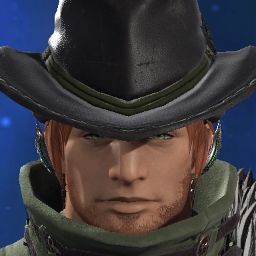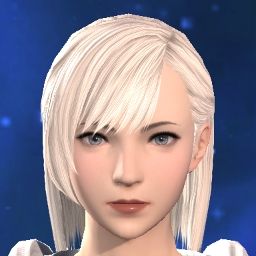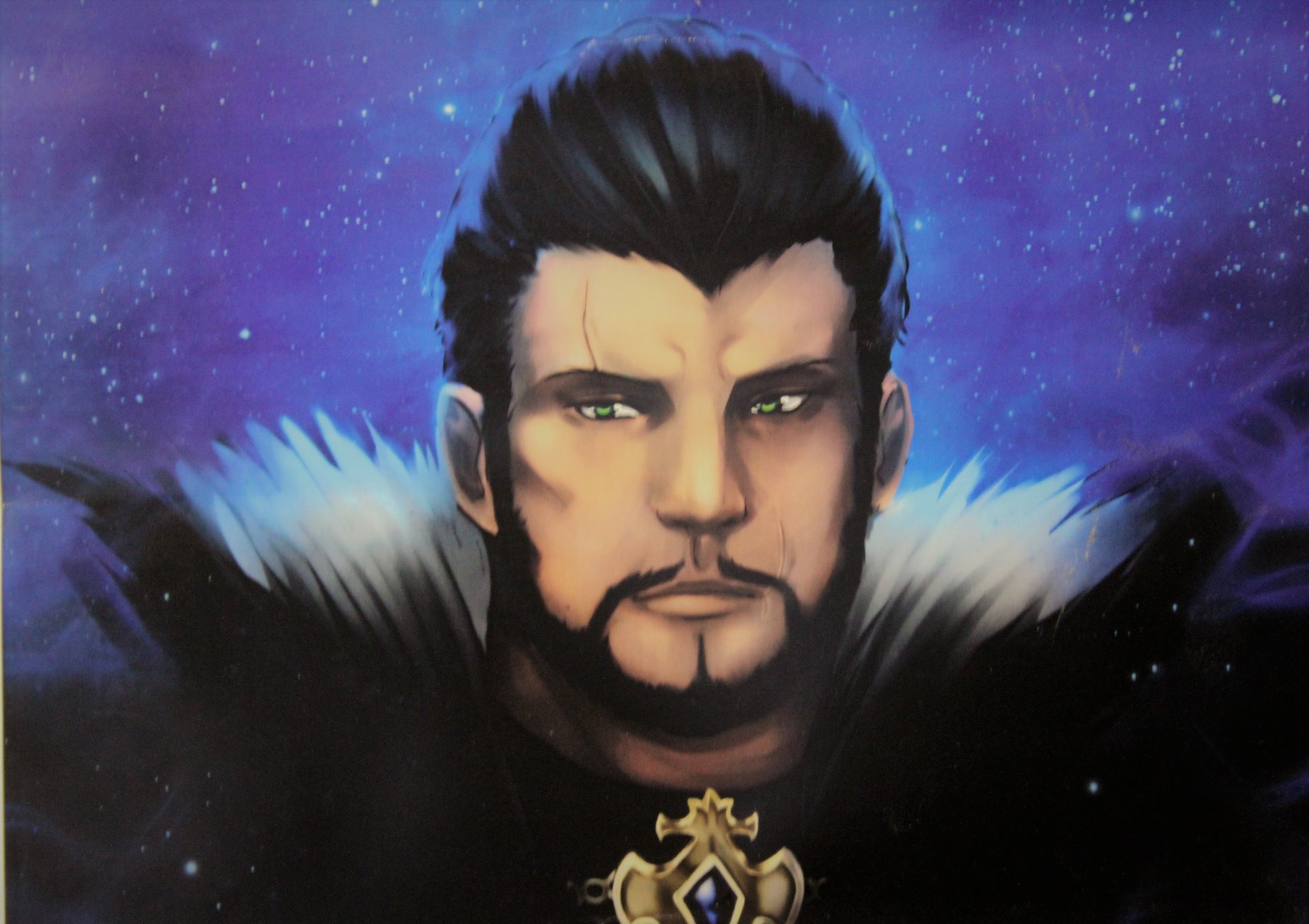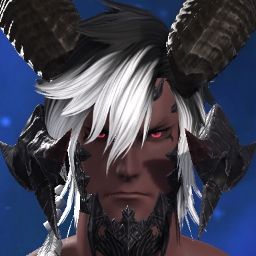Hybrid View
-
07-03-2022 02:28 AM #1Player

- Join Date
- Jun 2019
- Location
- The Bureau of Clownery
- Posts
- 38
- Character
- Keelty Brewer
- World
- Lich
- Main Class
- Conjurer Lv 2
(7)While you were studying the blade, I was learning about better recycling methods from Elidibus.
-
07-03-2022 03:09 AM #2Player

- Join Date
- Feb 2021
- Posts
- 3,472
- Character
- Kizuya Katogami
- World
- Cerberus
- Main Class
- Conjurer Lv 81
It doesnt matter if its the final disc. Noctis still dies in the final disc portion. So does Serah in 13-2. So does Gabranth in 12 etc. It's no excuse. Whats the excuse for no deaths or consequences in ShB then? Also....said heroes had to apply what theyve learned in this same expansion to defeat the end goal foe so im not sure any of that applies here whatsoever. Regardless, it doesnt change the fact that despite this expansion being advertised as dark and grim and scary, its filled with the most fluff and fanservice than any other expansion.
(6)
-
07-03-2022 04:12 AM #3Player

- Join Date
- Mar 2022
- Posts
- 655
- Character
- Victoria Crowny
- World
- Hyperion
- Main Class
- Black Mage Lv 90
FFXV is also infamous for its finale being extremely rushed and being largely incomplete without the DLC/novels to tie things together, with said tie-ins even making a case that Noctis's sacrifice was mostly wasteful.
FFXIII-2 is the second part of a story which not only kills NO ONE in it's ultimate finale a game later, literally brings every main character that did die back from the dead to punch God with the power of friendship.
Gabranth is a "Support character". His death has similar plot significance to that of Zenos, and he's even an "antagonist" that helps the protagonists in the final hour, much like Zenos.
Honestly, you would have made a better point arguing for Shadow at the end of FFVI or Vivi at the end of FFIX. But even then, we're talking about specific exceptions to the FF formula. I'm sure that you really enjoy those games where the heroes have to sacrifice themselves in the end or die, but not EVERY game needs to end that way. I don't care if a story is an unambiguous happy ending or not. Chrono Trigger and FFX are two of my favorite games ever, with two radically different types of endings, but I don't think either is worse for it.(4)Last edited by CrownySuccubus; 07-03-2022 at 04:51 AM.
-
07-03-2022 04:52 AM #4Player

- Join Date
- Feb 2021
- Posts
- 3,472
- Character
- Kizuya Katogami
- World
- Cerberus
- Main Class
- Conjurer Lv 81
I’m not saying every game needs to end that way. But when the writers and the devs are preaching how suffering and sacrifice is necessary, it comes across as a rather hollow sentiment when none of the main cast has to actually sacrifice or suffer from anything. Not to mention the amount of plot altering plot armor or plot holes that are created purely to keep these characters alive that ruins the flow of the story. How am i supposed to take certain antagonists or threats seriously if they can’t even land a scratch on the main cast? How am i supposed to feel invested if i know the heroes are always going to win? This was what was interesting back in ARR,HW and other ff games. Games like 7,9,10,12 etc that actually had lasting consequences for the heroes and where they actually had losses. This has been absent from 14 for a long time know and this isn’t some unknown thing, it’s incredibly prevalent.
15 being rushed doesn’t matter. Endwalker was rushed, doesn’t change much.
13-2 is still a game in itself, it still had a “final disc” portion that you want to preach about.
Gabranth was a pretty pivotal member of the main cast, considering he makes numerous appearances throughout the entire game. 6 or 9 aren’t exceptions to the ff formula. If we want to make a case for a formula it’s that a main character usually dies. This has been prevalent as early as ff2, and has since been a thing in ff4,ff5,ff6,ff7 and ongoing.(5)
-
07-03-2022 05:09 AM #5Player

- Join Date
- Mar 2022
- Posts
- 655
- Character
- Victoria Crowny
- World
- Hyperion
- Main Class
- Black Mage Lv 90
This again goes into that "finale" point I was talking about before. Estinien, Thancred, Urianger... even the WOL have all gone through hardships and lost people they care about. Alisaie lost a good friend on the First. I know you don't like G'raha, but even he's been through some stuff for over a century. Alphinaud and Y'shtola...I honestly can't remember, so you kinda got me there.
As I said, I don't particularly care that they didn't "suffer more" in Endwalker specifically.
I mean, the antagonists in question are Fandaniel, Meteion and Zenos. The prior two are preoccupied trying to kill pretty much everybody all at once and the latter is hyper-focused on killing one person, who is literally the player. I'm not exactly sure what kind of ending was being expected here.
Also ignoring the "plot armor" part. We've been over that ad nauseam, and I'm not getting into that again.
Again, the only way you can argue the characters haven't suffered "lasting consequences" is if you look at Endwalker completely on its own and divorced from the rest of the story. Again, I don't particularly disagree with the sentiment that the expansion was toothless on its own merits, but again....I don't see this as some absolute, objective failing of writing as you seem to be implying it is.
Not sure what you're on about here.
FFXIII-2 ends on a literal cliffhanger which gets undone in the very next game. It being a "game in itself" is irrelevant, because Serah's "death" had zero impact.
Sure. He was a pivotal support character.
Again, the majority of these games have main characters die in the first or second acts of the story. Not the final act, which is what Endwalker is. Of the games you listed, the ones that count for that are FF6 FF9, and I think FF2....but it's been a while since I've played it.
At this point, I feel like we're going in circles.(4)
-
07-03-2022 07:25 AM #6Player

- Join Date
- May 2014
- Location
- The Interdimensional Rift
- Posts
- 3,600
- Character
- Vicious Zvahl
- World
- Excalibur
- Main Class
- Machinist Lv 100
FFII kills Josef very early. Kills Scott, Gordon's brother very early. Kills Minwu rather late in one of the final dungeons, second or third to last. Kills Ricard Highwind when he sacrifices himself so that the party and Leon can escape Hell Emperor right before he raises Pandemonium.
FFV has Galuf die right as the final act starts, the final act being the optional tasks of collecting the 12 holy weapons/super spells etc.
FFVI kills Shadow in two different areas. At the end of Floating Continent if you don't wait for him, and then in Kefka's Tower he chooses to go down with the tower to try and repent for his past. It also kills General Leo right before Floating Continent, and kills Cid at the start of World of Ruin if you don't feed him enough of the healthy fish.
FFVII kills Aeris, what, mid way through? I'm not a big 7 fan.
FFX killed Tidus and Auron.
FFXI... it's been a long time, but... It kills Lion in RoZ, only to bring her back through some Crystal Line chicanery if you do all of CoP as well and then the RoZ CoP crossover mission, Apocalypse Nigh. In ToAU they killed some new side characters, and one of the main characters to the expansion. That would be Luzaf, the pirate king of Ephramad, though technically he escaped Hell to come back to try and get revenge on Aht Urhgan, so technically he was already dead/on borrowed time. WoTG killed more side people, some ancestors of NPCs you meet in the current time, and you have several missions dedicated to bringing Lilisette back to life after the first battle with the Spitewardens where her existence shatters due to idk, time paradox or something from her father being turned into a Spitewarden iirc. I don't recall any big deaths or side deaths in Seekers of Adoulin, but I will admit I've only played through it once, and even that was several years ago now. Rhapsodies of Vana'diel had some bad stuff happen that I don't recall fully, only done it once as well. Don't know anything about Voracious Resurgence. Haven't done any of it.
Anyway, it's not beyond Final Fantasy to kill characters in the final act. Endwalker's problem was trying to have its cake and eat it too. Oh boohoo, all the Scions sacrificed themselves. Oh wait, half way through those necessary sacrifices, the Cat Girl Awooga tells you point blank that you can just bring'em all back with the Azem Stone. Killing all emotional impact that could be had, if you were even inclined to think it was going to be permanent.(7)
(Signature portrait by Amaipetisu)
"I thought that my invincible power would hold the world captive, leaving me in a freedom undisturbed. Thus night and day I worked at the chain with huge fires and cruel hard strokes. When at last the work was done and the links were complete and unbreakable, I found that it held me in its grip." - Rabindranath Tagore
-
07-03-2022 07:46 AM #7Player

- Join Date
- Jul 2015
- Posts
- 1,220
- Character
- Ashe Sinclair
- World
- Phoenix
- Main Class
- Thaumaturge Lv 60
Aerith dies. Zack was violently murdered. Basch failed the King. Vaan lost his only remaining family. Kefka won and brought about the collapse of the world, and Celes tried to commit suicide. Midgar was destroyed, and the cast were trying to pick themselves up amidst its ashes for years after. You're doing the same thing you've done before - picking trivial arguments and resting on them for pages and pages until the discussion becomes nigh on incoherent. Then you try to imply it's the other party desperate to have the last word.
The semantics of when and who according to your own brand of reasoning are irrelevant, enough past FF games have had the protagonists experience some hardship that hits particularly close to home; to have everything they know destroyed, to lose the ones they love, to see their worst fears realised, or go through or have experienced some form of betrayal or loss. The impact revebrates for a long while after, and the ending is often bittersweet.
XIV at the same time tackles something supposedly deeper and darker, whilst completely scaling back on the result. For a story that deals with the very essence of these themes that have been so prevalent in these past titles - overwhelming sorrow, grief, loss, and suffering - as its protagonists undergo the second coming of a universe-spanning apocalypse heralded by the harbinger of all-consuming death and despair, the consequences were ridiculously inadequate, the characters left unrealistically unaffected, and Endwalker was fundamentally affected by this, in terms of plausible writing, storytelling and the impact it had on the message it wasn't so much as trying to convey as beat you to death with. It is impossible for the stakes to have been any higher than what they were, and yet... nothing happened, and nothing continues to happen. Everyone is fine, there are no lasting repercussions, ill feelings, or traumas. It makes the entire experience ring hollow, and it isn't true to XIV itself, let alone the FF franchise. I'm weary of the notion that expecting some sort of fall-out from disaster and chaos on such a scale is somehow equivalent to asking a George RR Martin novel, when SE themselves would never have approved such a light and unrealistically inconsequential ending in any of its other games.
It's one thing to be all right with it, but pretending it didn't affect the weight of the story or deviate from what we've come to know and expect of FF is just flat out denial.(7)
-
07-03-2022 08:26 AM #8Player

- Join Date
- Mar 2022
- Posts
- 655
- Character
- Victoria Crowny
- World
- Hyperion
- Main Class
- Black Mage Lv 90
Almost every single one of those happened before the final act of the story, which was my point. Frankly, I have no idea why you think ANY of this has anything to do with what I said.
It's more like you guys keep trying to nitpick and then acting like I'm the one being unreasonable, really.
What I specifically said was that Endwalker is the "Disc 4" portion of the Season 1 saga of FFXIV, and that Final Fantasy games typically avoid major party death during this phase of the story or afterward. There are exceptions; FF6, FF9, FF10, and FF15. But they are just that: exceptions, and not the rule. (And FF2 as well, but I couldn't remember specifics until someone else reminded me.)
I also stated that one of the weakest parts of Endwalker's writing was the reliance on fake-out deaths.
Yep. Which I already mentioned, but said that I couldn't remember specifics of.
So not in the final act, which agrees with my point.
Mentioned Shadow already. Leo dies in the middle act of the story. Cid is a supporting character.
Yep. Late middle of the story. So pretty much where I said.
Pretty sure I mentioned FFX as one of the exceptions.
I don't remember enough about FFXI to comment.
All of this is almost word-for-word what I've said in this thread.
Sure. I mean, the FFIX party get their butts kicked by Kuja twice in the story proper, but manage to defeat him, Deathguise, and Necron in succession of another. AFTER being Ultima'ed by Trance Kuja to the brink of death. The FFVIII party need to run from a mechanical spider and lose to Edea, but then manage to defeat the most powerful Sorceress of all time, in her own element.
FF characters get stronger throughout the plot, and often win in the end with some power of love/friendship BS. It's not that strange.
Alisaie was stuck on the first and had known Tesleen for at least months (I think it was actually more like a year) before we arrive, which frankly, is LONGER than most die-hard "nakama" know each other in a Final Fantasy game. G'raha lived a hundred years giving up everything he had (his body, his soul, and with the expectation of his life) to try to save someone he cared about and the world.(5)Last edited by CrownySuccubus; 07-03-2022 at 08:42 AM.
-
07-03-2022 08:57 AM #9Player

- Join Date
- Feb 2021
- Posts
- 3,472
- Character
- Kizuya Katogami
- World
- Cerberus
- Main Class
- Conjurer Lv 81
Guess theres not much else to discuss if we're going to start nitpicking every single little detail... I really wonder why so many people in this community enjoy being willfully obtuse and ignorant.
(6)
-
07-03-2022 10:17 AM #10Player

- Join Date
- Jul 2015
- Posts
- 1,220
- Character
- Ashe Sinclair
- World
- Phoenix
- Main Class
- Thaumaturge Lv 60
You referenced the supposed previous hardships of the characters as a means of defending the lack of repercussions for them in Endwalker; my point was they're still relatively non-existent next to the devastating and far-reaching effects of the backgrounds of previous protagonists, with the exception of Estinien. They're also relevant to the discussion regarding any character suffering; you're the one who arbitrarily defined Endwalker as a "final disc" to explain away the lack of any real impact the story had upon the cast, which is nonsense in itself considering Endwalker, like previous expansions, is a story in its own right within the saga. Do you truly read the final book of a series and expect nothing of real note to happen to the characters since it's the last installment in the tale, or would you not expect something all the more pivotal to happen considering they're at their most vulnerable at the most dramatic, climactic part of story so far?
And I reiterate that's nonsense. And even in the event that it wasn't, 5 games out of 15 is not "an exception", nor does that have any bearing on what should or shouldn't happen - it's down to the plot of the story, and if said writing takes me through a world-wide apocalypse to a creature of doom at the ends of the universe that can "unmake" a person with their power over life itself in their domain, I would expect far more serious implications than what we had.What I specifically said was that Endwalker is the "Disc 4" portion of the Season 1 saga of FFXIV
If you're going to become despondent every time you are challenged, especially when the opinion you hold is in a relative minority, and - if I'm being honest - at times fairly incendiary in tone, then you need to readjust your expectations or go elsewhere where others share your opinions. Everyone has as much right to address you as you do to express yourself. It's also a tad childish and a little egocentric to think of yourself as any more deserving of space here than any other given person for whatever reason you deem appropriate.(5)



 Reply With Quote
Reply With Quote









